For Jack Alcott, the Finale Is Just the Beginning
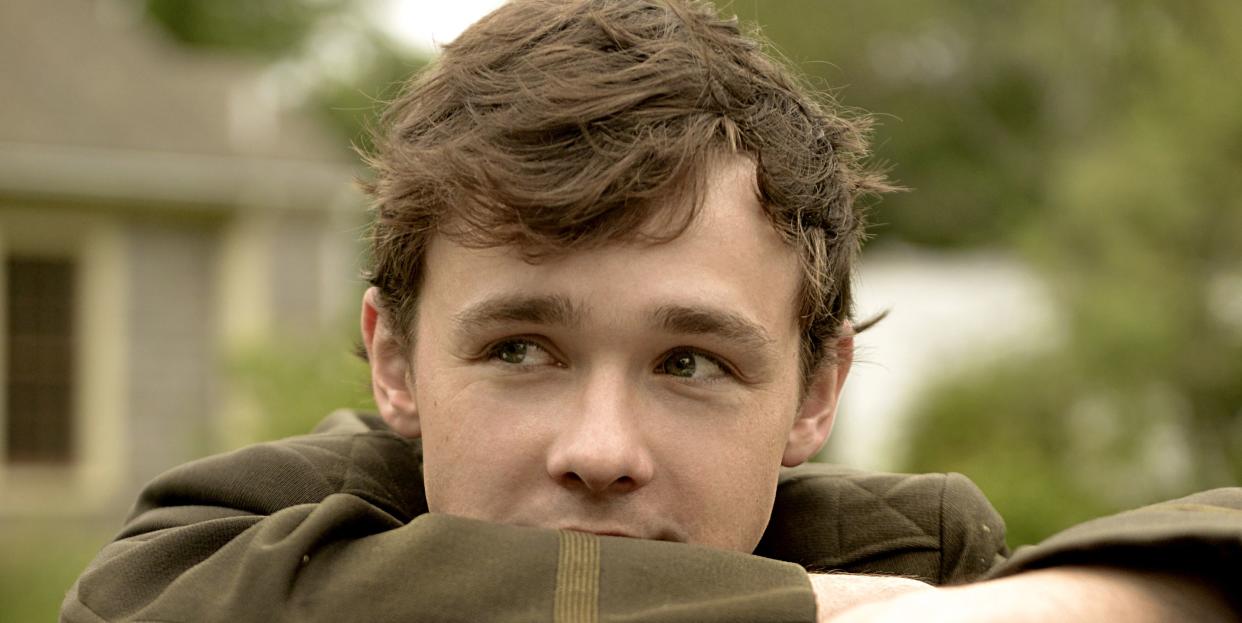
- Oops!Something went wrong.Please try again later.
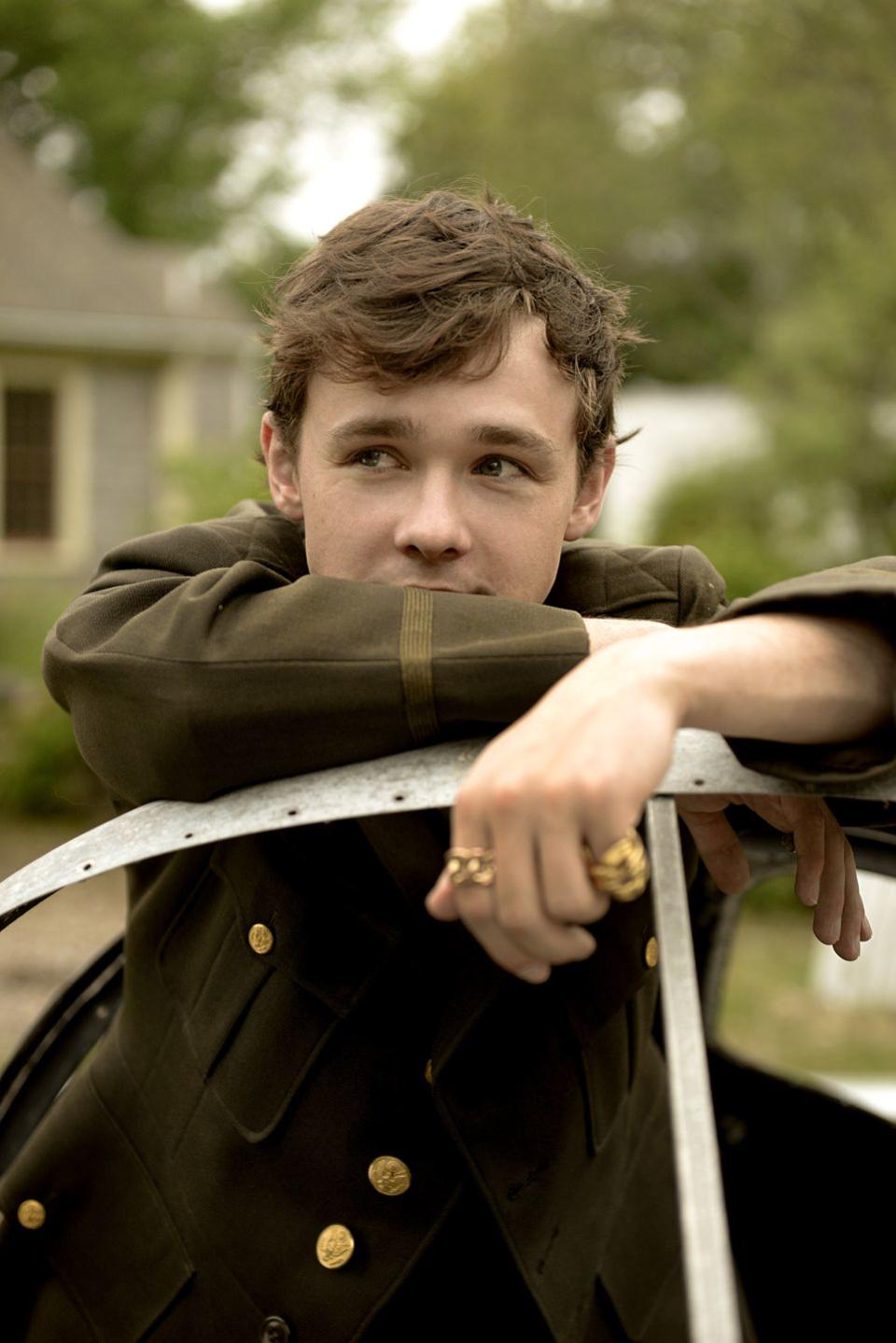
Jack Alcott is ready for the backlash.
Having just killed off one of the most iconic characters in television history, he knows he’s in for a torrent of angry tweets, Instagram DMs, and blog posts from legions of Dexter fans irate that Alcott has finally, officially, laid the titular character to rest.
“I was worried about it after we shot it, because I was like, Oh my God, I killed Dexter. I'm going to be the most hated man in America for at least a week,” Alcott says. “Because even though it is the right ending, the ending the show deserves, the ending the character deserves, the ending the character wants, there's definitely some guilt that comes with killing off one of the coolest TV characters of all time.”
On Sunday, Alcott, who plays Harrison, Dexter’s son, in Dexter: New Blood, the continuation of the iconic late-2000s TV show, shoots Dexter dead in the season finale’s dramatic penultimate scene. It’s an appropriate but nonetheless shocking ending to one of the most beloved anti-heroes in TV history, and with it, Alcott, 25 is now cemented in TV canon—just as his career is getting started.
“It's a divisive ending,” Alcott says. “It's going to put a lot of people in tears. Some of them will be satisfied because it is a pretty fitting end, but a lot of people are also going to put their feet through their TVs.” He continues, “But I also feel incredibly blessed to be part of a story that's going to affect a lot of people. Whether it makes them angry, happy or sad, whether it makes them hate me, whatever, it’s cool to tell stories that affect people—regardless of what that effect is.”
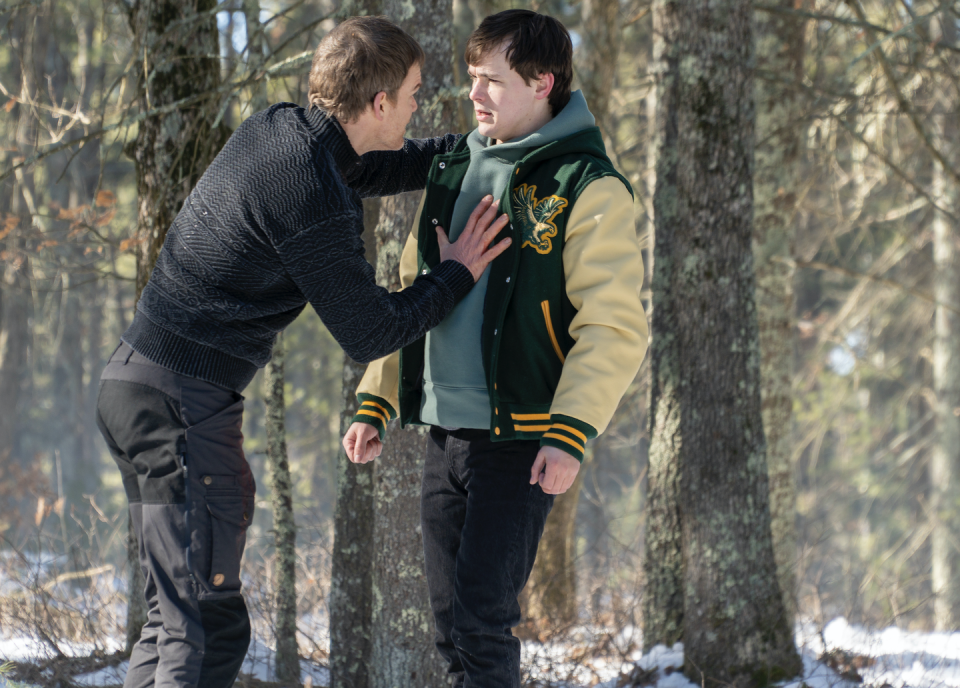
Alcott is speaking to me from his childhood home, a farm in Franklin, Tennessee, a town of 77,000 people 20 miles south of Nashville. He was previously in New York, living the struggling actor life, but moved back when the pandemic hit. “It didn't take long for me to be like, ‘I'm going to stop paying for my expensive closet apartment that no one's staying in and spend Covid here at home with my family,” Alcott says. Outside this morning, the farm grounds were draped in snow, reminding him of the setting for New Blood.
Moving back in with your parents would seem like great preparation for a character who simultaneously resents and longs for the approval of his father, but Alcott says it wasn’t a method technique. The hardest part about playing Harrison, in fact, was relating to the character’s strained relationship with his father. “I have a wonderful relationship with my father, with both my parents, so I was sort of terrified coming into the role. The crux of this character is this really strange relationship between father and son and I don't know how that works,” Alcott says.
Dexter stans are sure to focus on the series’ grisly conclusion, but it’s the tension between Dexter and Harrison—a father and son trying and failing to truly know and love each other—that forms the dramatic foundation for New Blood. It’s in those moments that the show is at its strongest, asking questions about fate, nature vs. nurture, and multi-generational trauma, and it’s actually a shame those aspects will almost certainly be overshadowed by the controversial ending.
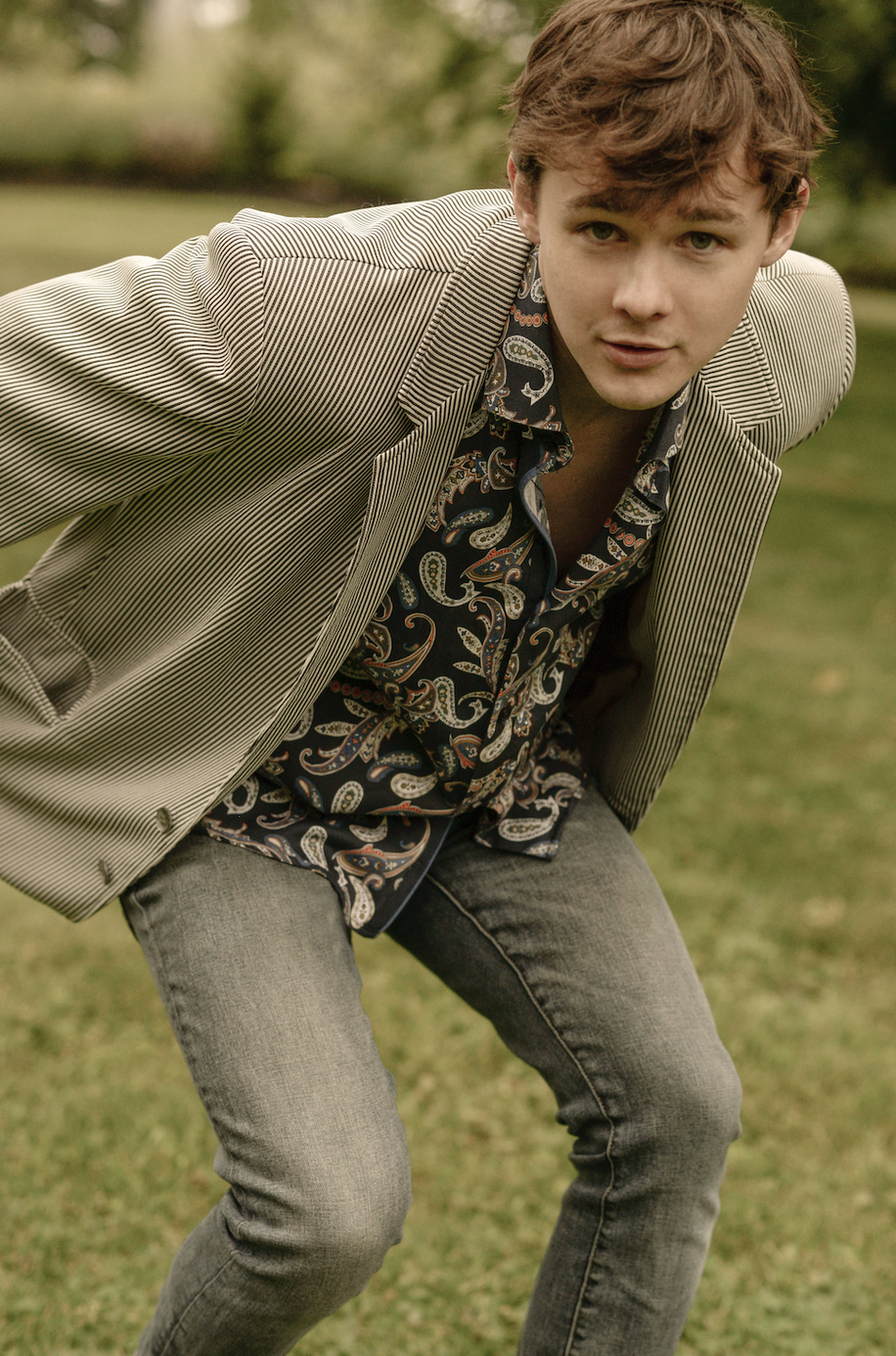
Someone once said, “Every man is either trying to live up to his father’s expectations or make up for his father’s mistakes,” and that dilemma is especially difficult and compelling when your father is quite possibly the most prolific, most infamous serial killer who’s ever plunged a knife into a person’s sternum. The death brings a definitive end to the season-long love-hate relationship between the sociopathic, murderous father and his slightly less violent but nonetheless deeply troubled son. In an earlier episode, Dexter, having noticed his son shares his violent tendencies, recruits him into his vigilante ritual of hunting down and disposing of another serial killer. But unlike the show’s cult following, Harrison isn’t titillated by Dexter’s hobby—he’s repulsed.
There’s an element of art imitating life to the finale. In the show, Harrison appears at his father’s doorstep after having been estranged for 10 years, and it’s through Harrison’s fresh-eyed perspective that the audience is able to re-examine its relationship to Dexter.
Alcott was just as oblivious about Dexter in real life. He didn’t see the show in its original run—he was too young for a program that reveled in gore—and he only started watching it when auditioning for the role of Harrison. But Marcos Siega, the director for New Blood, told him not to watch past season one; he wanted Alcott to approach the role without any preconceived notions.
“Multiple times in the season, Harrison says ‘I have questions. I want answers.’ Which is how I approached it as an actor. To not have the answers is always better. It's always more compelling to watch someone really genuinely pursue something, than to telegraph knowing or pretending not to know,” Alcott says.
One season was enough for Alcott to pick up on a couple of Michael C. Hall’s mannerisms as Dexter, specifically his leaned back, hips-forward gait—“He's got a really swaggy walk. He kind of saunters,” Alcott says—and the way he tears into his hearty breakfast each morning. Alcott was instructed to eat his food “like a fucking Tyrannosaurus rex.”
Behind the scenes, though, their relationship was more that of professional collaborators than of father-son or mentor-protégé. “I remember the creative team told me early on, ‘We want your input on the character so you're not just supporting Michael.’ I thought they were just being nice. But then on set I had lots of agency and people wanted to know what I have to say.”
Alcott even got to consult on the ending. Despite the climax of the 10-episode miniseries, the shooting was shot early in the production to make sure the scene would have snow on the ground. “It was the most stressful thing I think I experienced in the entire shoot,” Alcott says of the shooting scene. “I thought, How am I going to deliver a performance worthy of all this buildup? I’m missing all this context.”
Being in the room with Hall and the executive producers as they shaped the scene helped ease his worries. “The gun came up way earlier in the original version of the scene, so that the entire scene was at gunpoint,” Alcott remembers. “In playing with it, we discovered that it comes up later, it makes a lot more room for a nuanced scene. It's less of just an angry son shooting his dad and more of a mutual discovery that this is how it's supposed to end and it won't work any other way.”
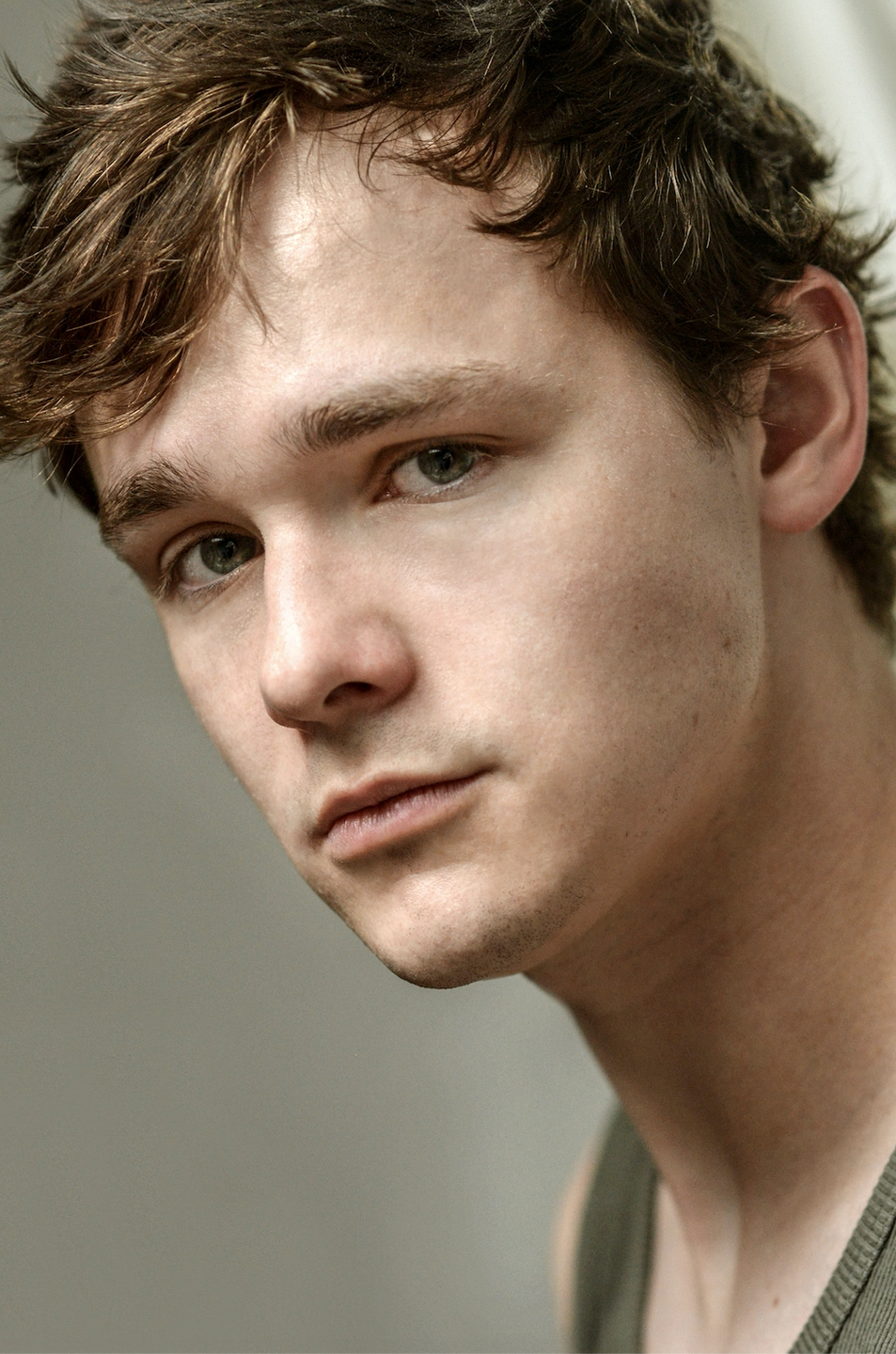
Fans were shocked Sunday night, as were many of the cast members who encountered Alcott on set—during filming, he let it slip that Harrison kills Dexter in the end. “I didn't realize that everyone else had redacted scripts. On the call sheet, the scene was described as ‘Harrison hugs Dexter.’ I totally spoiled it for a couple people. I was like, ‘That moment where I shoot him,’ and people would turn white and say, ‘What? No!’”
In a plot twist evocative of A Bronx Tale, Harrison ends up forming a deep connection with Kurt Caldwell (Clancy Brown), the serial killer Dexter is hunting. Caldwell takes a liking to the misguided Morgan child, and he and Dexter end up vying for the boy’s affection.
The competition raises the question of whether Dexter truly loves his son, or if his admiration for Harrison is just an extension of his own narcissism. “Michael [C. Hall] made a really cool comment about how Dexter sees Harrison as a little mirror. And that ends up being one of the things that, of course, pulls him apart because that's not what Harrison is,” Alcott says. “Before Harrison shoots him, Dexter says, ‘I don't think I've ever been able to love someone until now,’ Maybe it's not until that moment, but I think he gets there.”
New Blood isn’t so much a reboot as an afterword—a corrective to the original ending to the series, which some regard as one of the worst of all time.
The politics of toxic male behavior have changed considerably in the eight years since Dexter went off the air, such that it’s no longer as chill to celebrate a murderous male anti-hero for his misdeeds, and New Blood goes to great lengths to portray Dexter’s bloodlust as more a narcissistic impulse than righteous vigilantism.
“Harrison has a much stronger moral compass than Dexter,” say Alcott. “He’s more human. He's less of a sociopath than his father. He has empathy. Harrison definitely has a version of the Dark Passenger [Dexter’s term for his murderous impulses]. But if Dexter's in the passenger seat/driving, then Harrison is in the third row and he can see it in the rearview mirror.”
Alcott is still baby-faced enough to pull off playing a teenager—Harrison is a high school student in New Blood—but he brings a surprising gravitas to the role, especially given his generally upbeat nature. “I love getting to play villains because it's so far from how I am as a person. It speaks to our interest in things that are dark. I don’t want this darkness in my own life, but I do want to touch it from a distance.”
That perverse intrigue with the macabre has served Alcott while in his young career. In addition to Harrison, he’s had roles on the Showtime miniseries The Good Lord Bird, in which he shoots a man in the back, a bit part on The Blacklist, in which he also shoots and kills someone, and the criminally underappreciated Champaign ILL, where he plays the emotionally unstable childhood version of the show’s chief antagonist. “I've found a lane in either playing some sort of psycho, or a character who shoots somebody and is like, ‘What have I done?’,” Alcott says.
Going forward, Alcott would love to do a feature film. He’s also considering doing musical theater, just like his on-screen father, Hall, who followed up the initial Dexter run by taking the lead role in the Broadway Hedwig and the Angry Inch.
The very last scene of New Blood shows Harrison, having just killed his father, driving away from the small town of Iron Lake. It seems, at first, a profoundly sad moment. Harrison is forced to leave behind the only family, friends, girlfriend and community he’s known since his mother died years ago. But as Harrison hightails it out of town, a smile creeps across his face.
The joy he feels comes from his newfound sense of hope, Alcott says. “He’s never felt this way before. Harrison has grown up thinking he’s a monster, that there’s something wrong with him. In Iron Lake, he had friends, father figures, a town that loves him. He realizes he’s able to live a normal life.”
The ending seems to set up the possibility for a Harrison spin-off, but Alcott says he hasn’t heard of anything in the works. Alcott intentionally didn’t create his own story about where Harrison goes and what he does with the rest of his life, because he felt the ambiguity would create a more compelling performance.
The audience doesn’t get a firm answer on Harrison’s life after Dexter, either. Instead we see Alcott driving, the open road in front of him, his future one of endless opportunities.
You Might Also Like

